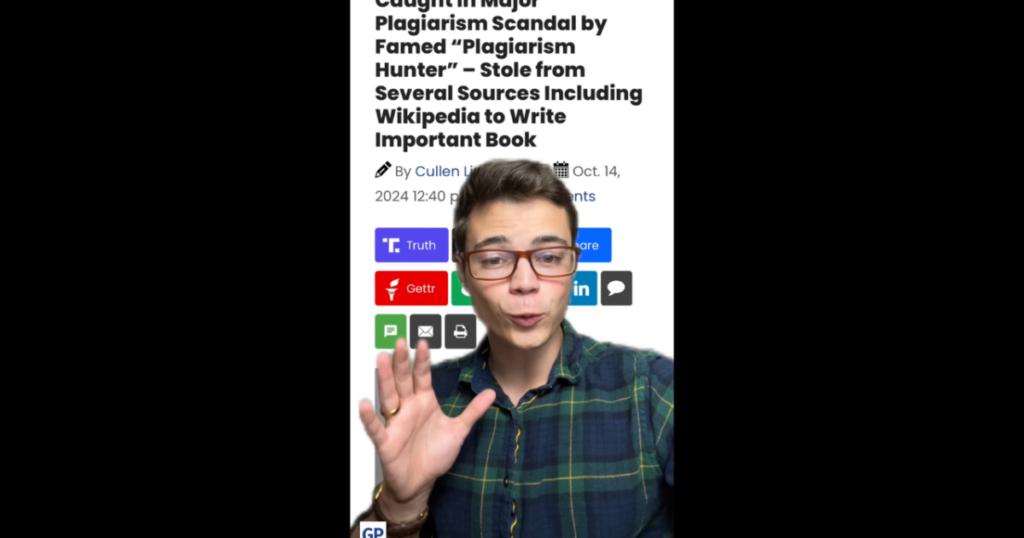Kamala Harris, once a rising star in American politics, is currently facing a significant scandal that threatens to undermine her credibility and political career. Reports, particularly from the Gateway Pundit, highlight that her reputation is further tarnished by allegations of plagiarism in her book “Smart on Crime: A Career Prosecutor’s Plan to Make Us Safer.” Co-authored with Joan O’C Hamilton during her campaign for California Attorney General in 2010, the book was strategically released to bolster her credibility on criminal justice issues. However, as her campaign faltered amid poor interviews and public scrutiny of her policies, this revelation has surfaced as a particularly damaging blow.
The concept of Harris’s alleged plagiarism was brought to light by activist Chris Rufo, who cited the work of a renowned Austrian plagiarism expert, Stefan Weber. Weber has gained notoriety for uncovering instances of literary theft among political figures in German-speaking countries. In his investigation of Harris’s book, Weber discovered more than a dozen examples of plagiarism, which Rufo confirmed and shared via his platforms. These findings are especially poignant given Harris’s previous success in narrowly winning the Attorney General position against Republican candidate Steve Cooley, purportedly aided by the credibility the book was intended to confer.
One of the most striking cases of alleged plagiarism involves Harris’s comments on school graduation rates, where she appears to have directly lifted lines from an AP/NBC News report. This blatant act of plagiarism has raised comparisons to President Joe Biden’s previous scandal over his own instances of copying, particularly when he borrowed phrases from British politician Neil Kinnock during his first presidential campaign. Such historical parallels only serve to deepen the implications of Harris’s actions, suggesting a troubling pattern for politicians who resort to unoriginality in their quests for public office.
The ramifications of this scandal extend beyond merely political embarrassment; they tap into the broader narrative of authenticity and integrity in today’s political landscape. Harris’s career, which has often been scrutinized for its inconsistencies and perceived opportunism, is now further burdened by elements that suggest she has not only failed to create her own policy ideas but has resorted to pilfering from others. This undermines her standing, especially against the backdrop of her targeted efforts to project herself as a competent and innovative leader in a significantly polarized political climate.
In addition to the plagiarism allegations, the scrutiny on Harris is intensified by her recent political maneuvers, where she has appeared to mimic several proposals associated with Donald Trump, such as the implementation of a tax exemption for tips and a proposal for increased child tax credits. Critics argue that these similarities reflect a troubling trend of Harris failing to produce original initiatives, further contributing to the narrative that her career may be built on borrowed ideas rather than genuine innovation or leadership. This has prompted questions from constituents and political analysts alike concerning her capability to carve an independent path in an increasingly competitive field.
As Harris grapples with this plagiarism scandal, the future of her political ambitions may hinge not only on the resolution of these allegations but also on her ability to regain public trust and showcase her originality as a leader. In a political arena where integrity is paramount, especially in the face of rising scrutiny and criticism, Harris’s credibility hangs in the balance. How she navigates this situation could determine not only her immediate political fate but also the long-term perception of her career and contributions to American politics at large. The outcomes of this scandal could serve as a defining moment, potentially shifting the dynamics of her future endeavors and public perception significantly.

